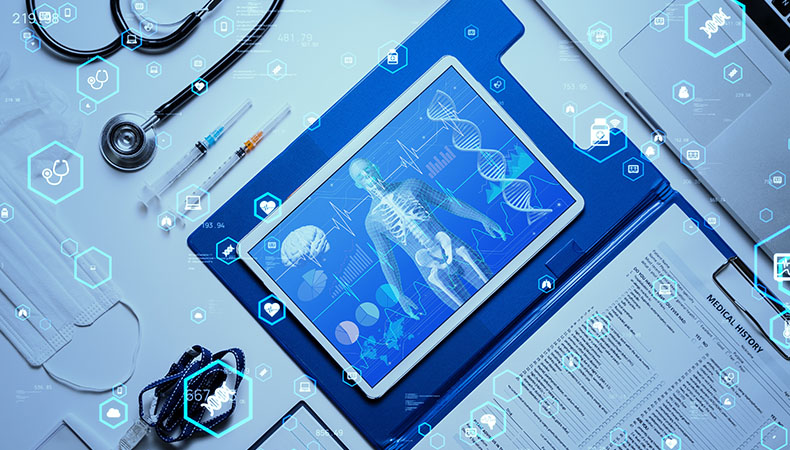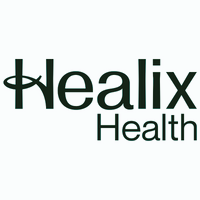Innovations to watch in cutting-edge employee healthcare research
Recent advancements in medical research have introduced new treatments, wellness programmes and preventative care strategies that can significantly enhance employee health.
Here are some of the latest innovations that are set to transform employer healthcare trusts and improve employee wellbeing.
Advancements in medical treatments
Personalised medicine
Personalised medicine, also known as precision medicine, involves creating medical treatments tailored to an individual’s unique genetic makeup, or the genetic make-up of their disease, in the case of cancer.
By understanding a person’s genetic profile through genomics, the study of the DNA of an organism and how it interacts in different situations, doctors can design more effective treatments for illnesses like cancer and heart disease.
This advancement could mean better health outcomes and faster recoveries for employees.
For instance, if an employee is diagnosed with cancer, personalised medicine can be used to target mutations in the DNA that are specific to that individual’s cancer, improving the chances of successful treatment and recovery.
Biologic drugs
Biological drugs are advanced medicines made from living organisms. They are used to treat chronic conditions such as arthritis, multiple sclerosis, inflammatory bowel disease and cancer.
These drugs target specific proteins in the body, offering better results with fewer side effects. Including biologics in healthcare trusts ensures that employees have access to the latest and most effective treatments.
For example, biological drugs can help an employee with rheumatoid arthritis by reducing inflammation and preventing joint damage, thus improving their quality of life and productivity at work.
Innovative wellness programmes
Digital health platforms
Digital health platforms are changing how employees manage their health. These platforms use apps and wearable devices to monitor health in real-time and provide personalised advice.
Features like virtual health coaching, online health assessments, and fitness tracking help employees stay on top of their physical and mental wellbeing. This makes it easier to maintain a healthy lifestyle, as employees can receive instant feedback and support.
For example, a digital health platform can remind an employee to take their medication, put them in direct contact with a GP or health professional, track their physical activity, and even provide meditation exercises to reduce stress.
Mental health initiatives
Mental health is a crucial aspect of overall health. New research from University of Bath shows that programmes focusing on mindfulness, stress management, and cognitive-behavioural therapy (CBT) can greatly improve mental wellbeing.
Employers who integrate these programmes into their healthcare trust can support their employees’ mental health, leading to reduced stress, decreased absenteeism, and increased productivity.
A good example is to offer mindfulness sessions that help employees manage work-related stress, while CBT can provide tools to cope with anxiety and depression.
Preventive care strategies
Predictive analytics
Predictive analytics uses data to predict future health issues.
By analysing health trends and employee health data, employers can identify which employees might be at risk of developing certain conditions.
This allows for early intervention through health screenings, lifestyle changes, and preventative measures, preventing serious health problems before they occur.
For example, predictive analytics can help identify employees at risk for diabetes, allowing for early dietary and lifestyle interventions that can prevent the onset of the disease.
Vaccination programmes
Vaccination programmes are essential for preventing infectious diseases and ensuring continued productivity in the workplace.
New vaccines are being developed for illnesses like the flu, and Covid-19.
By incorporating these vaccines into healthcare trusts, employers can protect their workforce from common diseases, ensuring a healthier work environment and reducing sick leave.
A robust flu vaccination programme can significantly reduce the incidence of flu in the workplace, keeping employees healthy during flu season.
Enhancing current offerings
Integrative health models
Integrative health models combine traditional medical treatments with complementary therapies like acupuncture, massage, and nutrition counselling.
These holistic approaches can enhance overall wellbeing and treatment outcomes.
By offering a variety of healthcare options, employers can meet the diverse needs of their employees.
For example, an employee suffering from chronic pain may benefit from a combination of physical therapy, acupuncture, and pain management counselling, leading to better pain control and improved function.
Chronic disease management
Chronic diseases, such as diabetes and heart disease, are a big concern for many employees.
Innovative management programmes include remote monitoring, personalised care plans, and continuous support, helping employees manage their conditions effectively.
Employers who invest in these programmes can reduce healthcare costs and improve the quality of life for their employees.
For instance, a chronic disease management programme for diabetes might include regular check-ins with a health coach, access to a dietitian, and tools for monitoring blood sugar levels, helping employees keep their condition under control.
Supplied by REBA Associate Member, Healix Health
The UK's leading independent corporate healthcare trust provider.








